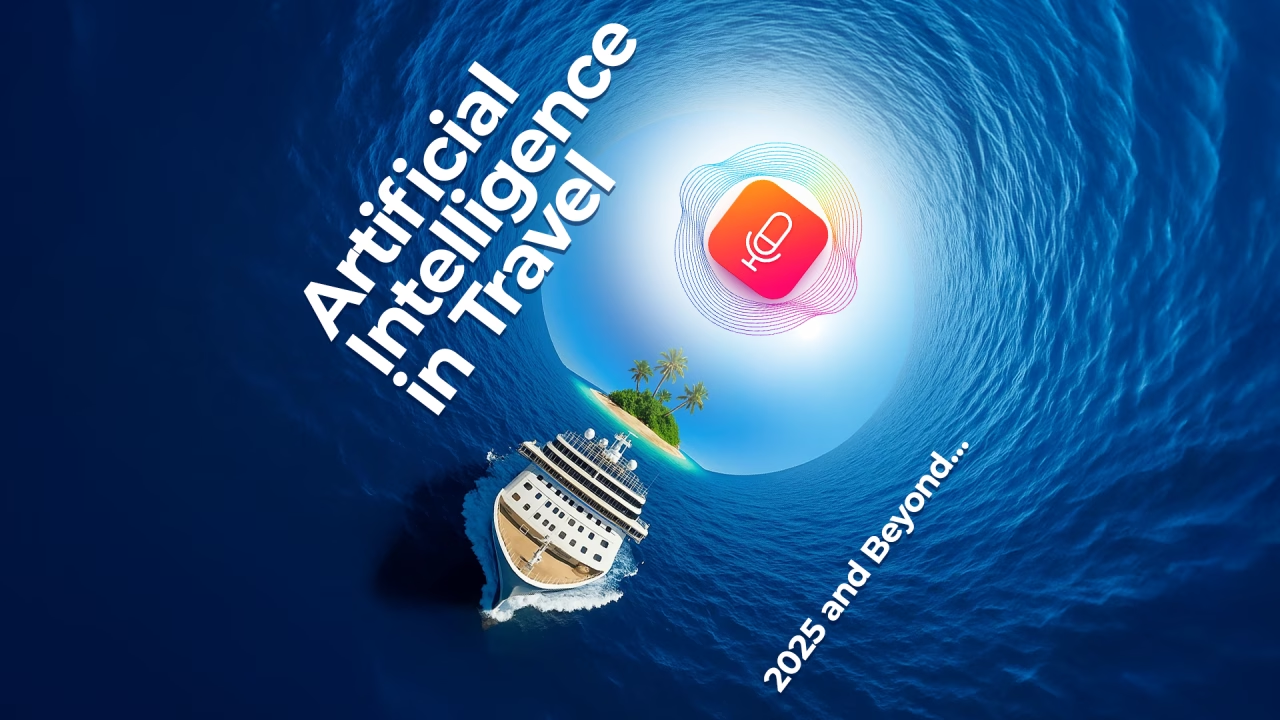Artificial intelligence is reshaping the world, and the travel industry is no exception. As we move into 2025 and beyond, AI has the potential to quietly change everything in travel, one step at a time. The transformation is not about making big, flashy changes but about enhancing the small things that really matter to travelers.
The Power of Subtle Improvements
I recently came across an insightful case study from Booking.com and OpenAI. What struck me was not how futuristic or extravagant it sounded, but how practical and real it felt. The key lies in using AI to provide a new level of personalization throughout the traveler journey. This approach does not aim to replace people or create something overly complicated. Instead, it focuses on gradually improving the travel experience in meaningful ways.
Step by step, AI can make travel more seamless and enjoyable. From planning a trip to booking, receiving help during the trip, and all the way to planning the next adventure, AI can create experiences that feel naturally smooth. Such improvements have the potential to drive customer experience (CX) and Net Promoter Scores (NPS) through the roof.
Creating Personalized Travel Experiences
Excursion Matchmaking with Real-Time Personalization
Consider how AI can transform excursion bookings. Booking.com already personalizes hotel listings by mixing user reviews, photos, and tags to craft summaries that resonate with different travelers. A solo traveler might see “quiet and safe”, while a family might see “vibrant and walkable”.
Imagine if this personalization was extended to excursions. Rather than seeing generic text and photos, travelers could receive descriptions tailored to their preferences. For instance, a solo traveler and a family could view the same tour but with different highlights emphasized. This personalization can increase bookings without requiring more inventory.
Digital Concierge for Seamless Service
AI can play a significant role as a digital concierge. Booking is testing an AI assistant that helps customers after bookings, answering questions and rescheduling activities. Such an assistant would be ideal for handling travel-related issues like weather changes, dining reservations, and port reminders. This does not replace human staff; instead, it allows them to focus on providing exceptional service.
Enhancing Trip Discovery and Planning
Natural Language for Trip Discovery
Booking.com has noticed a change when they opened a free text box for search. Instead of typing specific locations like “Paris 5 nights”, users now say things like “somewhere quiet with good wine and warm weather”. This shift indicates that people want to search in a more conversational manner.
Imagine a travel site where customers can type “I want something relaxing with nature in October” and receive tailored itineraries. This approach makes discovery feel more human and enjoyable.
Smart Filters Driven by Intent
Gone are the days of checkboxes. AI can interpret vague intentions like “sunset views” or “great breakfast” and convert them into search filters. Travelers can find the perfect stateroom or excursion based on these personalized filters, even if they are not sure how to articulate what they want.
Accelerating Decisions and Responses
AI-Driven Review Summaries
Few travelers want to sift through thousands of reviews. Booking.com’s AI summarizes key review themes, helping customers quickly decide based on crucial factors like cleanliness or staff friendliness. This boosts confidence and speeds up decision-making, especially for new customers comparing options.
Faster Service with AI Responses
AI enables partners on Booking.com to auto-reply to common questions, monitoring the quality of responses. This approach reduces response times, increases customer satisfaction, and allows teams to focus on unique requests. Such efficiency could be extended across support teams, onboard services, or excursion teams.
Personalizing Content and Managing Trips
Tailored Content Based on Profiles
Booking.com modifies property descriptions based on who is browsing. For example, a solo traveler might see different information compared to a family with children. This personalization can be applied to activity descriptions, dining options, and more, making the experience feel personal to each traveler.
Evolving Post-Booking Tools
The focus on post-booking has led to the development of AI assistants that help manage reservations and travel issues. These tools can reduce pressure on support teams and ensure that travelers have a smooth journey without missed moments.
Embracing AI and Breaking Barriers
Building Trust in AI
Research indicates that nearly half of travelers already trust AI for planning trips, with many using it to discover hidden experiences. This shift presents a golden opportunity for companies to align with traveler expectations by offering smarter planning tools that require less effort from users.
Eliminating Language Barriers
AI’s ability to translate content into multiple languages opens new markets and enhances accessibility. This capability is crucial for things like menus, excursion details, and signage, allowing travelers to interact with content in their native language effortlessly.
Conclusion
The future of AI in travel is bright and within reach. Booking.com’s efforts illustrate how AI can quietly revolutionize travel through subtle enhancements rather than disruptive overhauls. These behind-the-scenes upgrades have the potential to completely transform how travel feels.
As we move forward, the travel industry should embrace these AI-driven innovations. They can enhance the travel experience in meaningful ways, making trips more enjoyable, seamless, and personal. What innovations are you excited to implement? We’d love to hear your thoughts on how AI could elevate the travel experience in your organization.
